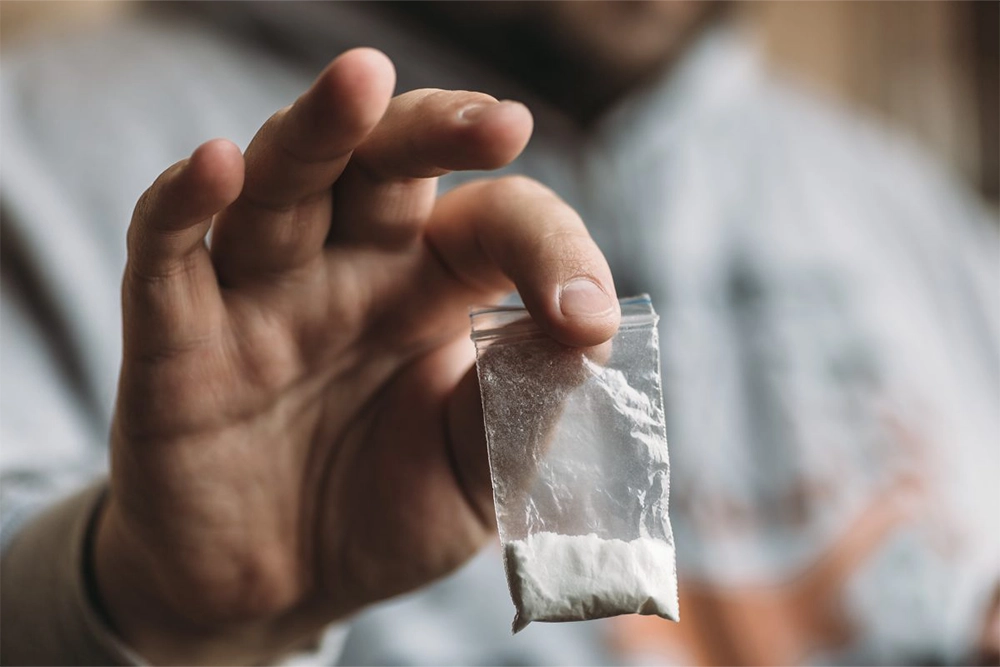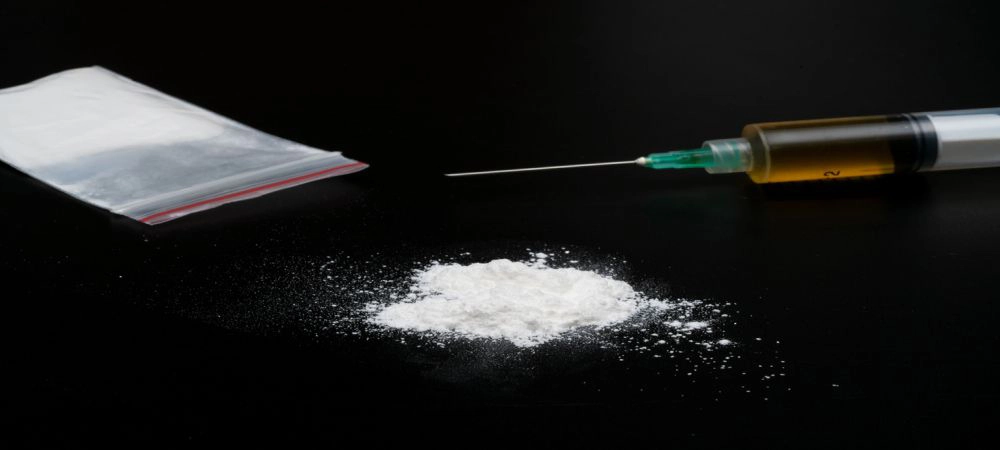Canada ranks second in the list of countries whose citizens admitted to regular cocaine use. According to data from the Canadian Tobacco, Alcohol and Drugs Survey (CTADS), about 2.6% of Canadians aged 15 and older reported using cocaine in 2020.
Possible reasons cited for Canadians’ addiction to this stimulant are the following. Cocaine in Canada costs $85 per gram. In most parts of the world, an average gram of cocaine is $120. Also, cocaine dealers in Canada are considered “totally” trustworthy by Canadian users.
What is Cocaine?
Before delving into cocaine use statistics in Canada, you should know what this drug is and how it functions. Cocaine is a drug made from the leaves of the coca bush. It is also known as coke, C, snow, powder lines, rock, blow, flake, and crack.
Technically speaking, crack is a freebase form of cocaine that’s a tad different from the original. Its difference lies in the fact that it is often smoked, not injected or snorted. Also, it doesn’t last quite as long in the system as normal cocaine because it is smoked.
So, crack smokers usually need more crack to maintain their high for extended periods. Finally, crack addiction is often a tad more challenging to treat than regular cocaine addiction. But, the name is still used interchangeably with cocaine.
The drug’s root plant is almost only found in the Andes Mountain in South America. In the past, Bolivia and Peru people chewed the coca leaves when they needed an energy boost. This usually only happened during one of their mountain hikes where there was little access to food, and they couldn’t afford to grow weak. In those periods, it was relatively unknown.
However, after it got what you might call a celebrity shoutout from Sigmund Freud, it became widely available. So much so that it was used in soft drinks and drugs. Due to the high rate at which it has been abused, cocaine is considered illegal in multiple countries, including Canada.
How Does Cocaine Affect The Body?
Cocaine, like many other drugs of its kind, is a stimulant. Its primary function is to trigger your brain’s reward system such that it begins producing your “happy hormones.”
Like dopamine, serotonin, and norepinephrine, these hormones are naturally released to make you feel good at specific periods. Sometimes, it’s when you’re infatuated with a person. Other times, it’s when you’ve had a delicious meal. However, cocaine bypasses these natural procedures and causes the sustained release of this hormone such that you’re in a constant state of “high.” At least, until the effects of the drug wears out.
Eventually, your brain will become so used to increased levels of these hormones that it begins to crave them constantly. So much so that it creates more receptors for the drug, effectively altering your brain chemistry.
Unfortunately, as time goes on, your body develops a tolerance for the drug. This means you’ll need more and more of it just to get that level of pleasure you had when you were on the drug. This is beside the fact that after each cocaine use, you’re likely to experience a crash.
That is, you become depressed and sad for days because your normal dopamine levels pale in comparison to what cocaine gave you. As such, even if it’s just your first time, you may want more and more just to maintain that feeling. This is why the cocaine use numbers in Canada are uncomfortably high.
How is cocaine used?
Cocaine is often taken through the nose in snorts while it is in its powder form. However, some others prefer to add water and inject it directly into their bloodstream. In other cases, people smoke it as crack after crystallizing it.
Now that we’ve gotten through all that let’s show you some cocaine use statistics in Canada alongside a couple of interesting facts about cocaine use.
Who Are Canada’s Cocaine-addicted users?

A 2020 survey revealed that cocaine use among Canadian teens and adults were increasing at 1.6% annually. This same demographic is also the country’s major cocaine users.
Cocaine, also known as coke, blow, snow, and rock, comes from the South American coca bush leaves. Once processed, the leaves turn into a white powder and are ingested in the following ways:
- Through nasal snorting
- Smoking
- Injecting the water-dissolved cocaine through the veins
Once consumed, cocaine’s effects vary from one person to another. A few of its effects include the following:
- A feeling of euphoria
- Mental alertness
- More energy
- Paranoia
- Anxiety
- Panic
- Talkativeness
- Less need for sleep and food
- Heightened senses
- Muscle twitching
- Quick startle response
- Nausea
- High blood pressure
- Rapid breathing
- Violent behaviour
- Heart issues
Statistics also show that while the number of new cocaine users is growing, the quantity of people who remain addicted is steadily decreasing. The decline has been attributed to prevention, ample education, and addiction treatment. Still, it is teens to young adults who are turning up as cocaine’s first-time users.
The Lethal Effect of Cocaine Use

Overdose is a lethal effect of cocaine addiction. There is no specific quantity that will cause an overdose. Though each individual’s reaction to cocaine varies, ingesting too much would cause the following effects:
- Seizure
- Stroke
- Breathing failure
- Irregular heartbeat
The danger of cocaine dependence
Another survey done on Canadian cocaine users revealed that six out of ten intend to use less of the drugs. Also, users who fall within the lower age bracket become nine times more dependent on cocaine compared to older users.
Fortunately, the same number of people surveyed claimed not to have used cocaine in the past year. Plus, the number of individuals addicted have been steadily falling.
If the Canadian government continues its diligent efforts to implement strategies to prevent its use, as well as further people’s awareness of its lethal effects, the downward statistical trend will highly likely continue.
People who are highly dependent on cocaine are unable to function in its absence. They start to crave it limitlessly due to the tolerance their body has built towards it. Eventually, they demand more of it in the hopes of receiving the same type of “high” they once received during their first hit.
Their cocaine craving disallows them to maintain focus on anything. The urge to use becomes more powerful than any person, responsibility or issue in their lives. Their thoughts and actions are taken over by their need to re-experience cocaine. Their brain, and consequently their mental function and behaviour is altered.
Long-term cocaine dependence eventually causes the following:
- Hallucinations, psychosis, delusions
- Mood changes
- Distrustful feelings, suspicion, jealousy
Physical symptoms include:
- Breath shortness
- Breathing failure
- Extreme chest pain
- Coughing up blood from the lungs
- Inflamed lungs
- Low blood oxygen
- Red, runny, chapped nose
- Development of a hole in the wall between the nostrils due to regular cocaine-snorting
- Nosebleeds
- Loss of one’s sense of smell
- Regular sinus infection
- Heart attack
Other manifestations of prolonged cocaine use are:
- Low libido
- Low sex drive
- Pregnant women risks stillbirth, miscarriage, premature delivery
- Seizures
- Bleeding inside the brain
- Possibility of the brain’s blood vessels to burst
- Blood poisoning (when injecting cocaine)
- Infection of the heart’s lining
- Hepatitis B, C and/or HIV (due to shared needles when injecting cocaine)
If a cocaine-addicted individual is abruptly stopped from taking them, withdrawal symptoms occur. These include:
- Feeling fatigued
- Having difficulty sleeping
- Persistent hunger cravings
- Losing energy, both mental and physical
- Irritability
- Behaving violently
- Depression
Conclusion
All in all, overcoming cocaine addiction is possible but difficult. The rewards of a cocaine-free life outweigh its use. Stopping now is a necessity if you want to live your best life. A detox or rehabilitation facility can help take you to where you want to be.
Here at Addiction Rehab Toronto, we can provide you with the tools to help you get rid of an addiction to cocaine. Speak to any one of our cocaine addiction therapists today!







